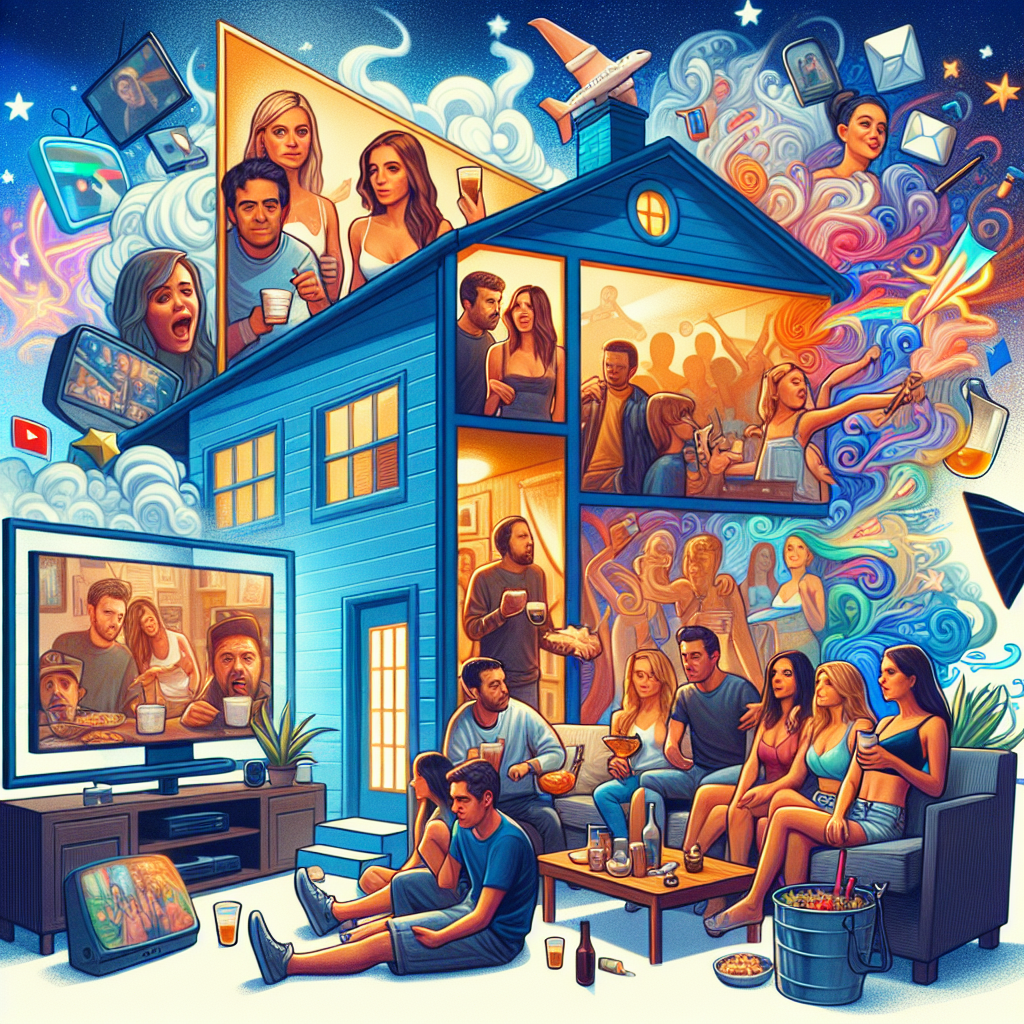===
“Exploring the Cultural Impact of Jersey Shore Season 1” offers an insightful look into a reality television series that transformed the landscape of entertainment. The show became an emblem of a generation’s thirst for bold personalities and larger-than-life scenarios, embodying a lifestyle that many viewers found captivating but difficult to relate to. Did Jersey Shore merely reflect existing societal trends, or did it create new norms that reverberated through pop culture? This article delves deep into both the phenomenon and the legacy of Jersey Shore, revealing how it set new cultural trends and shaped reality TV norms, providing the ultimate guide for those wishing to grasp its enduring significance.
The Phenomenon of Jersey Shore: Setting Cultural Trends
From its inception, Jersey Shore ignited a cultural wildfire, capturing the attention of millions across the globe. The series showcased a group of young adults living in a beach house during the summer, engaging in frequent parties, romantic escapades, and quintessentially American moments. This unique premise tapped into the audience’s fascination with hyper-reality—where drama and entertainment were woven seamlessly into the fabric of everyday life. As a result, viewers found themselves entranced by the show’s blend of raw authenticity and staged scenarios, creating an irresistible compulsion to tune in weekly.
Moreover, Jersey Shore was not merely a show; it became a cultural touchstone. The characters, each embodying distinctive personalities, resonated with viewers in unprecedented ways. From “Snooki” to “The Situation,” these larger-than-life personas became cultural icons, influencing fashion, language, and social behaviors. The show’s catchphrases and signature styles—like Snooki’s infamous poof hairstyle—introduced a new lexicon of youth culture. This phenomenon extended beyond the screen; bars, clubs, and merchandise capitalized on the show’s themes, showcasing its profound influence on lifestyle choices.
Critics often argued that Jersey Shore promoted a hedonistic and superficial lifestyle. However, it also sparked crucial conversations about identity, class, and the American Dream. The series offered a glimpse into the lives of working-class individuals seeking fame, fortune, and validation, thus challenging prevailing stereotypes about reality television participants. By laying bare the complexities of youth culture, Jersey Shore not only entertained but also ignited discussions about the roles of privilege, race, and societal expectations in shaping individual narratives.
Lasting Legacy: How Season 1 Shaped Reality TV Norms
The legacy of Jersey Shore’s first season is evident in how it reshaped the reality TV landscape. Before its debut, reality television primarily focused on competition or social experiments, but Jersey Shore redefined the genre through its emphasis on personality-driven storytelling. This pivot encouraged subsequent reality series to prioritize character development and interpersonal relationships, leading to a more emotionally invested audience. Viewers were no longer passive observers; they became deeply attached to the lives of the cast members, creating a sense of community and engagement.
Furthermore, Jersey Shore’s success paved the way for a slew of spin-offs, clones, and derivatives that sought to replicate its formula. Forms of entertainment such as E!’s "Keeping Up with the Kardashians" and MTV’s "Teen Mom" owe their existence, in part, to the groundwork laid by Jersey Shore. This show established the template for successful reality programming: feature bold characters, inject a healthy dose of drama, and maintain an open-ended narrative that encourages viewers to return for more. Such shows have thrived, underscoring the importance of relatable yet aspirational content in attracting and retaining audiences.
In addition to shaping the genre, Jersey Shore’s first season significantly impacted social media trends. The cast became some of the first reality stars to leverage platforms like Twitter and Instagram effectively, using their newfound fame to connect directly with fans. This dynamic interaction transformed the way reality television was marketed and consumed, setting a precedent for how future reality stars engage with their audiences. The show’s ability to transcend the screen and create an all-encompassing cultural experience redefined the viewing paradigm, making it a crucial touchstone in the evolution of reality TV.
===
The cultural impact of Jersey Shore Season 1 is a multifaceted phenomenon that extends beyond mere entertainment. Its ability to set trends, shape norms, and spark conversations reveals the significant role reality television plays in contemporary society. As we reflect on its legacy, it’s crucial to understand how this show not only entertained but also inspired a generation to explore their identities and aspirations. For those seeking a deeper dive into the nuances of reality TV’s evolution, Jersey Shore serves as an essential case study—one that continues to influence both the creators and consumers of modern media. If you have thoughts about the show’s impact or want to explore similar cultural phenomena, feel free to share your insights.
Top New Jersey Hotels for Easy Access to New York CityRevamping Tradition: The Evolution of BC Lions JerseysRevolutionizing Sports: The Rise of Custom Basketball JerseysRelevant LinkRelevant LinkRelevant Link
